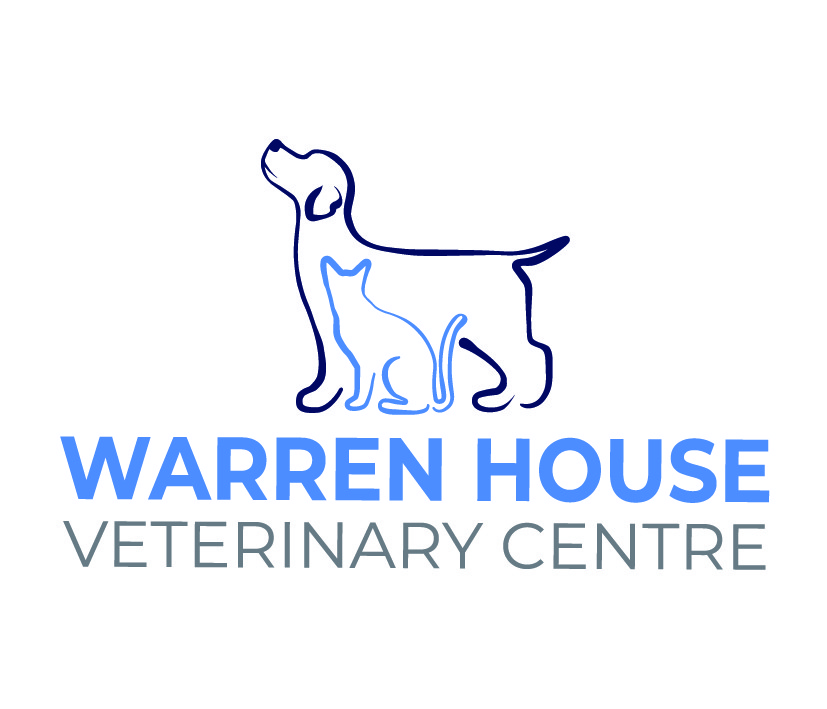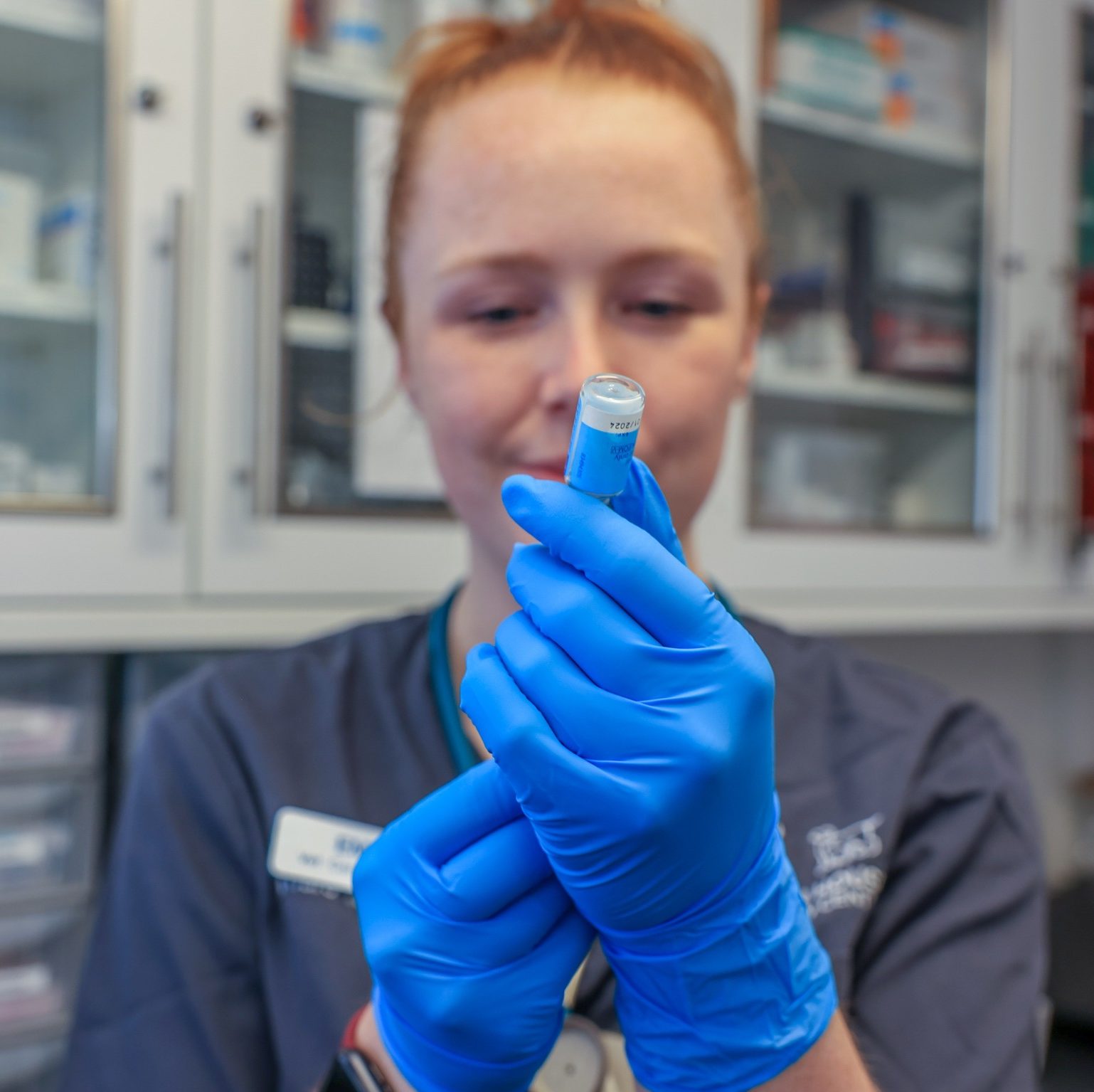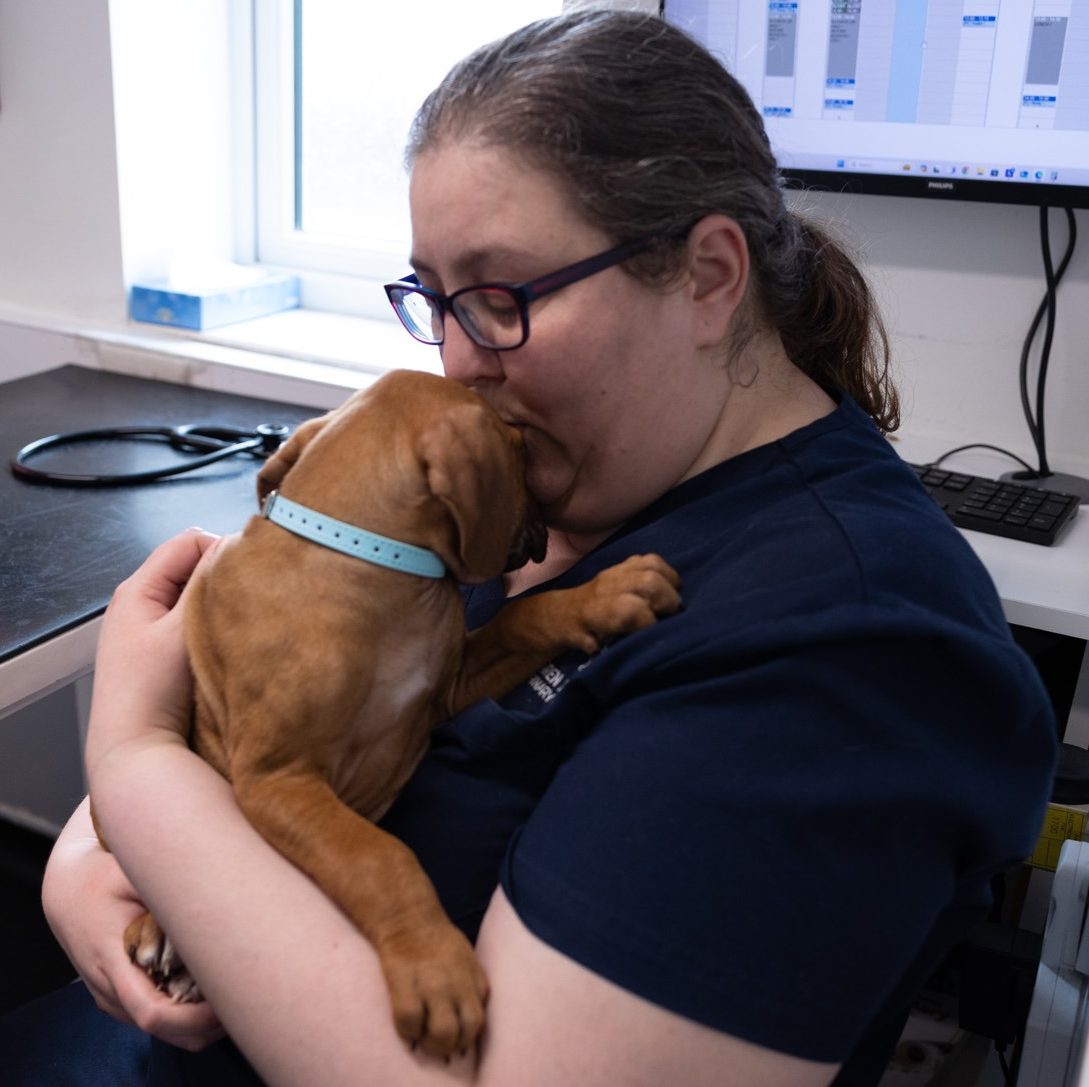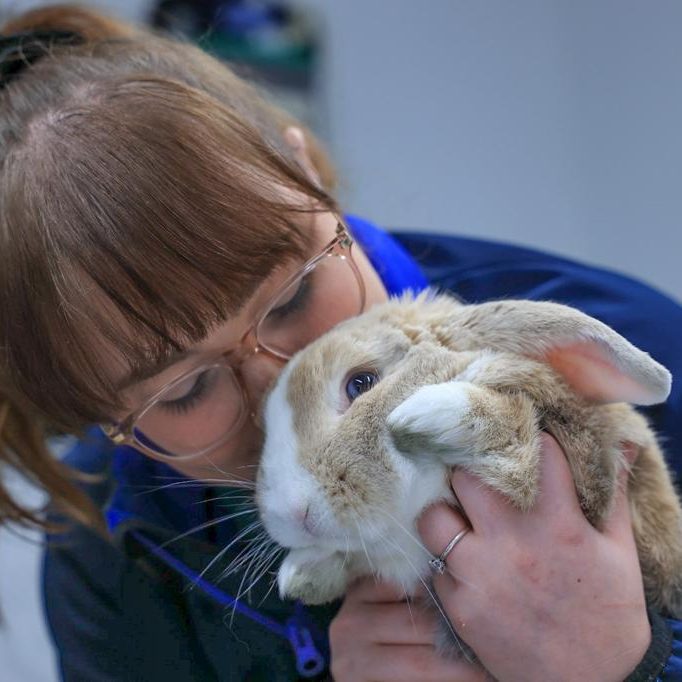Vaccinations
Vaccinations are a very important part of the preventative health care we provide, helping to reduce the risk of serious infectious diseases for our pets.
Included in our Pet Care PlanWhat Is A Vaccine?
Vaccines are biological agents administered to your healthy pet so that your animal has immunity against particular diseases or conditions. Vaccinations generally contain tiny doses of de-activated microorganisms that stimulate your pet’s immune system.
Immunity starts within a few days after the first dose but research has shown that the full cover and longer-lasting effect is approximately 2 weeks after the second dose. This is the reason why it is recommended not to socialise your pet (particularly a puppy) before the second dose.
Subsequently, a booster dose is required on an annual basis to ensure the immunity response doesn’t decrease and your pet stays protected. Once the ‘safe’ time for the booster dose elapses (3 months over one year in dogs and cats) your pet will need a restart course consisting of two injections, similar to the very first vaccination course.
What Are The Benefits?
PROTECTION
Vaccinations protect your pet against many diseases, some being deadly.
SAVINGS
Vaccinating your pet will help you avoid costly treatments.
HEALTH
Most importantly, ensure your pet lives a healthy and long life.
Dogs
Protected Against
Canine Hepatitis (Adenovirus) – Infectious hepatitis is a virus that attacks the liver, blood vessels, immune system, kidneys, eyes, lungs, and heart.
Canine Parvovirus – Parvovirus is a virus that causes severe illness and death in dogs. It damages the lining of the intestines, causing severe vomiting and diarrhoea. It also attacks infection-fighting cells inside the bone marrow, which weakens the immune system making it very difficult for dogs to recover.
Canine Distemper Virus – Distemper is a nasty virus that attacks several different organs in the body including the guts, heart, immune system, lungs, brain and nerves. Distemper causes a variety of symptoms ranging from mild cold-like signs to seizures and death.
Canine Leptospirosis – Leptospirosis (often shortened to lepto), is a bacterial disease that causes serious illness by damaging vital organs such as the liver and kidneys. Leptospirosis bacteria can spread in urine and can enter the body through the mouth, nose or wounds.
Infectious Tracheobronchitis (Kennel Cough) – Kennel cough is an airway infection that causes a dry hacking cough in dogs. Similar to human colds, kennel cough can be caused by several different germs (viruses and bacteria).
Rabies Vaccination – Essential if travelling with your dog. Rabies is a deadly virus that attacks the central nervous system (brain and nerves), causing severe symptoms and eventually death. It travels in saliva, so dogs tend to catch it if an infected animal bites them, or if they have an open wound that’s licked by an infected animal (but this is much rarer).
Rabies is a zoonotic disease, which means it can spread between animals and humans.
Cats
Protected Against
Feline Calicivirus – Feline calicivirus (FCV) is a highly contagious virus that is one of the major causes of upper respiratory infections (URIs) or cat flu in cats.
Feline Rhinotracheitis Virus – Feline viral rhinotracheitis (FVR) is an upper respiratory infection of the nose and throat in cats.
Feline Panleukopenia Virus – Also known as FPV, feline parvovirus and feline infectious enteritis, is a nasty virus that attacks the guts, immune system and sometimes, the heart. Sadly, FPV often causes severe illness and sometimes death.
Feline Leukaemia Virus – Feline Leukaemia Virus (FeLV) is a virus that attacks the immune system and causes cancers such as lymphoma and leukaemia. Cats with FeLV have an increased risk of developing other infections and diseases.
Rabies vaccination – Essential if travelling with your cat. Rabies is a viral disease that specifically affects a cat’s central nervous system (CNS).
Rabbits
Protected Against
Myxomatosis – Myxomatosis is a severe disease (caused by a virus) that affects rabbits. It damages multiple areas of the body such as the skin, eyes, lungs, liver, and genitals, and puts infected rabbits at a high risk of catching other nasty infections.
Rabbit Haemorrhagic Disease 1 & Disease 2 – RHD is a virus that targets rabbits, attacks their internal organs (such as the liver), and causes internal bleeding. Sadly, RHD is fatal in most cases.
There are two types of RHD virus, RHD1 & 2. RHD1 causes very sudden illness and is nearly always fatal within two days of catching it
When To Vaccinate Your Pet?
1
PRIMARY VACCINATION
Primary vaccination is made up of two doses, approximately two weeks a part.
2
ANNUAL VACCINATION
To keep your pet protected you will need yearly vaccinations known as boosters.
3
DON’T FORGET!
If it has been more than 15 months since the last booster your pet should restart the vaccination course.
What To Expect From A Vaccine Appointment?
Your vaccination appointment is a chance for your vet to really see how your pet has been doing. Your dog will be weighed, and have a thorough medical exam.
You will be asked some questions about your pet’s behaviour, and specific topics such as eating and drinking habits.
Your vet will also listen to any concerns you may have, and help you manage these.
As well as the thorough exam, your vet will administer the vaccinations.
FAQ’s
Not Registered? Join us, it will only take a minute
Don’t worry, we are still registering new clients and would love to have you and your beautiful pet’s on board.
REGISTER




